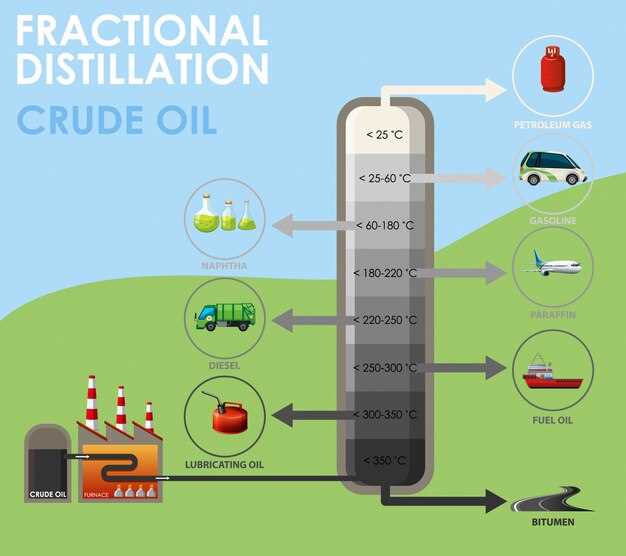
In the transition to more environmentally friendly transportation, modern diesel trucks have incorporated Diesel Exhaust Fluid (DEF) systems as a key component in reducing harmful emissions. DEF is a non-toxic, clear, and colorless solution made up of 32.5% urea and 67.5% deionized water. This fluid plays a crucial role in the Selective Catalytic Reduction (SCR) process, a technology designed to minimize nitrogen oxides (NOx) emissions from diesel engines.
The introduction of DEF systems has fundamentally changed the way diesel engines operate. By injecting DEF into the exhaust stream, it reacts with NOx in the SCR catalyst, converting these harmful gases into nitrogen and water vapor–elements that are harmless to the environment. Understanding how DEF systems function is essential for truck operators and maintenance personnel, as it not only ensures compliance with emissions regulations but also optimizes engine performance and efficiency.
The management of DEF is critical; the fluid must be monitored and replenished regularly to avoid potential engine derating when levels drop below a certain threshold. Operators must familiarize themselves with DEF-related best practices, including storage guidelines and compatibility with existing diesel systems. As emissions standards continue to evolve, staying informed about DEF usage and technology will be vital for anyone involved in the operation or maintenance of modern diesel trucks.
How DEF Fluid Reduces Nitrogen Oxides in Engine Systems
Diesel Exhaust Fluid (DEF) plays a crucial role in modern diesel engine systems by significantly lowering nitrogen oxides (NOx) emissions. NOx compounds are generated during the combustion process, particularly at high temperatures, making them a major contributor to air pollution and smog. DEF is a non-toxic solution made of 32.5% urea and 67.5% deionized water, which is injected into the exhaust stream of diesel engines.
The reduction of NOx emissions occurs through a process called Selective Catalytic Reduction (SCR). When DEF is introduced into the exhaust gas, it vaporizes and decomposes to form ammonia (NH3). This ammonia then reacts with NOx in the presence of a catalyst, converting harmful nitrogen oxides into nitrogen (N2) and water (H2O), which are harmless and naturally occurring components of the atmosphere.
This chemical reaction is highly efficient, allowing engines equipped with SCR systems to meet stringent emissions standards. By utilizing DEF, diesel trucks can maintain optimal performance while significantly reducing their environmental footprint. The widespread adoption of DEF technology is essential for achieving cleaner air and promoting sustainable transportation solutions in the automotive industry.
In summary, DEF fluid is integral to modern diesel engine systems, effectively reducing nitrogen oxides through the SCR process. This innovation is vital for lowering emissions and ensuring compliance with environmental regulations, making it a cornerstone of emission control in the transportation sector.
Best Practices for Maintaining DEF and Diesel Engines

To ensure optimal performance and longevity of both Diesel Exhaust Fluid (DEF) and diesel engines, adherence to best practices is essential. Regular maintenance routines play a crucial role in reducing emissions and enhancing overall engine efficiency.
First, always use high-quality DEF that meets ISO 22241 standards. Poor-quality fluid can lead to injector clogging and negatively impact SCR (Selective Catalytic Reduction) systems. Store DEF in a clean, cool, and dry environment to prevent contamination and degradation that could occur from exposure to sunlight or fluctuating temperatures.
Additionally, monitor DEF levels consistently. A low DEF supply can trigger engine de-rating, adversely affecting vehicle performance. Implementing a routine check of the DEF tank can help avoid operational issues and ensure compliance with emissions regulations.
For diesel engines, maintain regular oil changes using manufacturer-recommended oil types. Dirty oil can harm engine parts and increase emissions. Replace fuel filters as suggested in the owner’s manual to keep the system clean and functioning optimally.
Moreover, ensure that the cooling system is operating efficiently to prevent overheating, which can damage engine components and affect emissions levels. Periodically inspect hoses and coolant levels to avoid leaks and overheating problems.
Lastly, perform scheduled diagnostic tests to assess the SCR system and monitor emissions performance. Addressing issues early can prevent costly repairs and maintain compliance with environmental standards.
Diagnosing Common Issues with DEF System Performance

Modern diesel trucks utilize Diesel Exhaust Fluid (DEF) to reduce emissions and improve compliance with environmental regulations. However, DEF system performance issues can arise, affecting engine efficiency and vehicle operation. Understanding common symptoms and their causes is crucial for effective diagnosis.
One common issue is the DEF pump failure. If the pump is malfunctioning, the vehicle may trigger warning lights on the dashboard. Drivers may experience reduced engine power or the inability to start the engine. Testing the pump for proper functionality can determine if it needs replacement.
Another frequent problem involves the DEF injector. If the injector becomes clogged or fails, it can lead to improper fluid distribution into the exhaust system. This situation often results in decreased performance and may trigger an engine check light. Cleaning or replacing the injector may resolve the issue.
DEF quality is also a significant factor in system performance. Contaminated or low-quality fluid can cause deposits to form within the system, impacting flow and efficiency. Regularly checking the fluid’s quality and ensuring it meets the required specifications is essential to maintaining optimal DEF system operation.
Temperature variations can affect DEF performance. The fluid freezes at low temperatures, resulting in blockages that hinder delivery to the injector. Implementing proper thermal management, such as insulating DEF tanks, can help prevent freezing and associated issues.
Lastly, the DEF tank level must be monitored. A low DEF level can lead to restricted engine power, as the system relies on adequate fluid levels to function correctly. Keeping the tank filled with the appropriate DEF fluid is vital for reliable performance.




